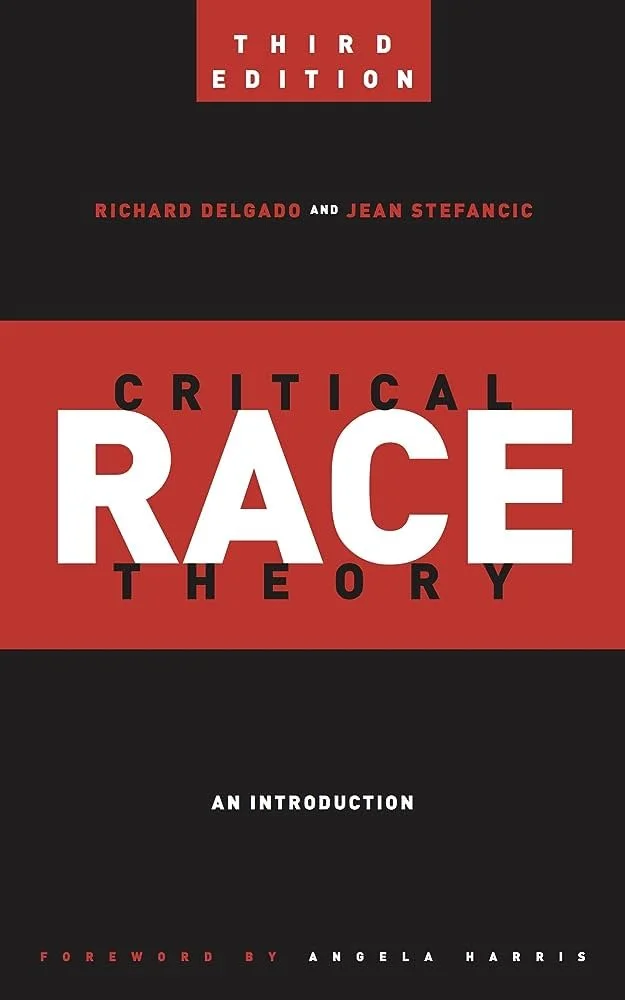Introduction
Critical Race Theory (CRT) is for everyone. There are different ways of presenting it and different concepts to use, but understanding CRT—whether you agree or disagree, provides a profound understanding of this nation’s history. As a proud American with an American Flag flying outside my front door, I whole-heartedly embrace the terms and concepts of CRT, even if I do not agree with all of it.
—Dr. Thomas D. Allison, Esq.
Session Lecture
Watch this lecture from “the Professor,” Dr. Thomas D. Allison, Esq., introducing Critical Race Theory and an overview of this course. Dr. Allison is a professor, an attorney in five states, a nonprofit executive, and has a doctorate in public administration.
Suggested Text: Critical Race Theory: An Introduction, by Richard Delgado and Jean Stefancic
What is the fuss about Critical Race Theory?
This short film discusses the reaction several places have had to Critical Race Theory and how those reactions are responded to by a renown scholar.
Topics Covered
These session covers the following Critical Race Theory terms and concepts:
Race permanence
Structural determinism
Differential racialization
Whiteness as a Property Right
Interest convergence
Storytelling
Intersectionality
Material determinism
Nationalism v. Assimilationism
The differend
FAQs
-
This course is about Critical Race Theory (“CRT”). Not only do we define CRT, but we define, explain, and provide examples of all of the terms, concepts, and principles of CRT. By the time you have completed this course, you should have a deep understanding of CRT, its content, and its criticisms. This course is not presented to teach you what to think. The purpose of this course is to teach you why to thing.
-
This is a free flowing course, go at your own pace. Simply cover the course content as presented from the top to the bottom of the content page. This foundational course is free; however, if you want to take your learning to the next level through a live experience, classes are available for a small fee. Access to the content of this course is also free; however, there is a coursebook that brings everything together and spells out how to use this information to make change that is also available for a small fee.
To navigate the course, go through the course objectives, then watch the session lecture. If you wish, do the session reading. There is a featured film or multiple films available for you, along with “film reflection questions” that help you zero in on key pieces of information. Finally, the session concludes with your journaling about what you have learned through a guided prompt of “session reflection questions.”
You should achieve all of the session objectives by the end of the course. The content is meant to be delivered in a way that caters to an audience with diverse learning styles. Your feedback helps improve our content. We hope you take the time to complete the quality control survey.
-
This course is for anybody looking to better understand Critical Race Theory. CRT is a complicated subject that has caught the attention on many people. A lot of this attention has been negative. Before judging it, people should understand it. This course provides access to community understanding of the terms and concepts of CRT. It is accessible for anybody from those with a high school diploma to those with doctoral degrees, it hits every level. The videos are introductory material while the readings to the material to a deeper level. The “session lectures” bring both together for a clear and concise summary.
-
This course is written and created by a legal studies professor who has taught college courses on Critical Race Theory and law school courses on Race and the Law, Dr. Thomas D. Allison, Esq. Thomas did his dissertation on building diverse, equitable, and inclusive community development networks. Thomas is the chair of Rotary District 5300’s DEI Committee, former Chair of the Faculty Diversity Committee and the University of La Verne, and a co-founder of the City of La Verne’s Committee on Cultural Awareness and Social Inclusion. Thomas is non-partisan and therefore has no political agenda, neither does he seek to elevate or diminish any political party through the delivery of this course content, no matter the images and content used by third parties.



